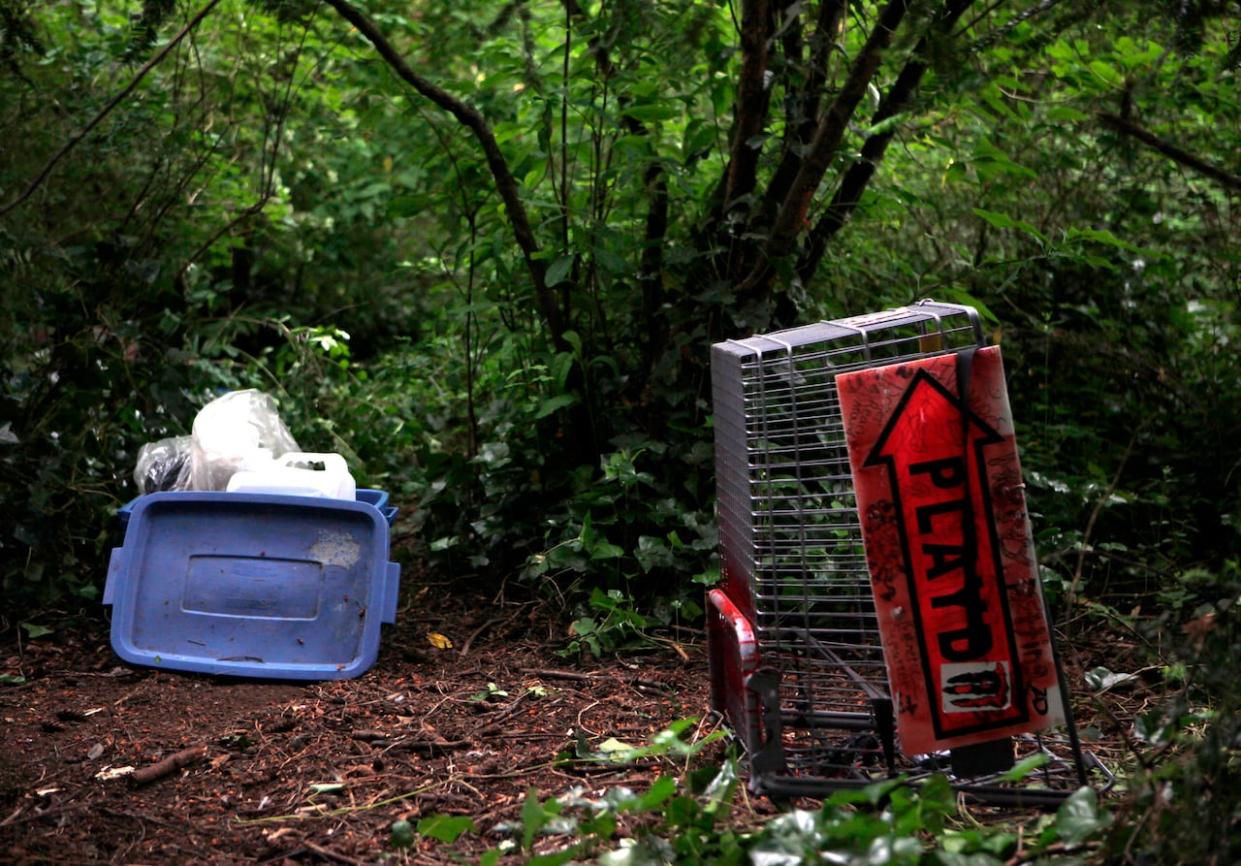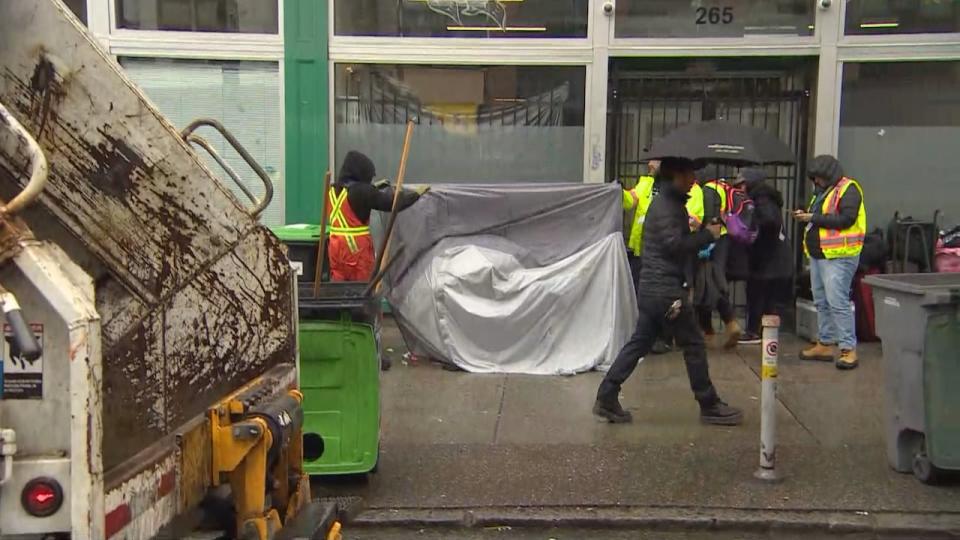City of Victoria streamlines impounding rules, drawing concern from poverty advocate

The City of Victoria has made several changes to its impounding process as it grapples with an increasing load of items picked up off the streets — but poverty advocates are raising concerns that they give too much power to bylaw officers to throw away the belongings of unhoused people.
B.C.'s capital city says it's struggling to manage up to 10 tonnes of material weekly unlawfully in public spaces.
It's one of many cities across the province grappling with a crush of materials — from mattresses to tents and couches either intentionally placed or abandoned on streets, sidewalks and parks — at the same time as they're reporting high rates of homelessness.
"The city's existing regulatory scheme is outdated, does nothing to deter the enormous amount of material which is routinely and unlawfully placed on public sidewalks, streets, and parks, and the challenges which flow from that," said a Victoria staff report to councillors advocating for changes to bylaws that clarify impound regulations.
The changes are designed to reduce the resources and time required to impound, process and ultimately return materials, and include giving workers "more discretion to discard material that is clearly identifiable as rubbish, hazardous, or bulky items, rather than being required to impound, transport, and document such items."
The changes, which come under a single bylaw that applies to all impounds, were unanimously approved by councillors on Thursday with little fanfare, despite concern from poverty advocates that the changes may disproportionately affect vulnerable groups.
"There's a lot of power being given to bylaw officers to take someone's belongings and throw them out entirely," said Douglas King with the Together Against Poverty Society.
Items impounded in Victoria now only need to be held for 14 days as opposed 30. At the same time, fines will now be waived for homeless people who come to collect essential items like tents or warm clothes.
"Those who may be liable for a fee typically lack the financial means to pay, and so in the majority of instances the imposition of a fee has little practical effect," said the report.
The changes also call for designating a specified location to claim all retained property, rather than multiple locations.

In cities like Vancouver, there are rules about impounding materials left in public spaces, but some municipalities such as Victoria are struggling to manage and process the amount of materials they find. (Mike Zimmer/CBC)
A similar bylaw in Vancouver requires items be held for no less than 30 days before the city can dispose of or sell the items. Reclaiming materials that have been impounded costs a minimum of $100.
Both Vancouver and Victoria have a provision in their bylaws that allows staff to dispose of materials immediately if "they pose a health or safety risk, or if they consist of garbage, waste materials, or perishable items."
But the cost of dealing with such materials continues to grow Vancouver. In 2020 it spent $11 million of its budget on street cleaning; for 2024 that amount will be nearly $15 million.
Belongings matter
King said he recognizes the need for cities in B.C. to modernize bylaws around materials in public places, but wants a system of accountability for things that may end up being thrown away, which might be valuable and needed by someone with little power to challenge a city worker's decision.
"A requirement that any belongings that have been destroyed be recorded, photographed, something that can show that that decision was made in a fair way and equitably," he suggested.
In November, researchers with Simon Fraser University, the University of British Columbia and the University of Ottawa published a report that looked into what happens to people's belonging when they don't have control over the spaces where they live.
It said there is little study of the importance of belongings to unhoused people, and highlighted the lack of clear and easy means for retrieving seized items.
The report called for all levels of government to find ways to recognize that unhoused people have property rights; and the need for remedies, such as prevention, compensation and even punitive actions against those who seize items without the right to do so.

